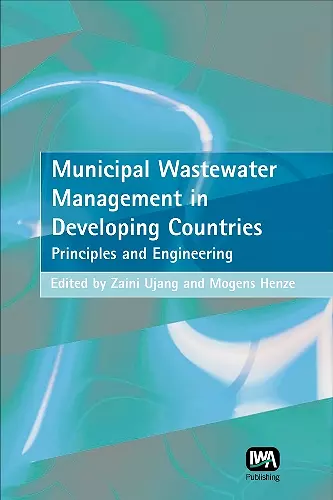Municipal Wastewater Management in Developing Countries
Zaini Ujang editor Mogens Henze editor
Format:Hardback
Publisher:IWA Publishing
Published:30th Apr '06
Currently unavailable, our supplier has not provided us a restock date

Municipal Wastewater Management in Developing Countries discusses various approaches to municipal wastewater management in order to protect both public health and the environment, with the major focus being on waterborne diseases. Developing countries can be divided into two main categories, i.e. countries in transition with higher growth rates where industrialisation and urbanisation are taking place rapidly, and countries with slower growth rates. It is important, therefore, that approaches should be tailor-made and site-specific. In general, the major trends of water pollution control have significantly contributed to the development of ?conventional sanitation? approaches in terms of legal and financial frameworks, as well as technological enhancement. Despite advances in the science, engineering and legal frameworks, 95 per cent of the wastewater in the world is released into the environment without treatment. Only five per cent of global wastewater is properly treated using the ?standard? sanitation facilities, mainly in developed countries. As a result, the majority of the world?s population is still exposed to waterborne diseases, and the quality of water resources has been rapidly degraded, particularly in poor developing countries. The challenge now is to provide the world?s population, especially the poor, with adequate water and sanitation facilities. Despite billions of dollars of investment spent every year, billions of poor people are still suffering and dying because of poor sanitation. At the beginning of this century, about 1.1 billion people lived without access to clean water (compared to about the same number in 1990), 2.4 billion without appropriate sanitation (compared to 2.3 billion in 1990) and four billion without sound wastewater disposal. The future scenario, that water resources will be further depleted by a growing world population, will be coupled with environmental degradation due to poor pollution control, particularly in most of the developing countries. In order to address the issue of water and wastewater management in developing countries it is necessary to take into consideration the segments of the society itself, particularly the types of housing areas. The segments will indicate the level of socio-economic, mentality and knowledge, which is important for any planned changes in their life style and social engineering. It is also important to segregate the funding framework of any proposed projects. High-income urban communities, for instance, are generally willing to pay for...
ISBN: 9781843390305
Dimensions: 234mm x 156mm x 18mm
Weight: unknown
365 pages